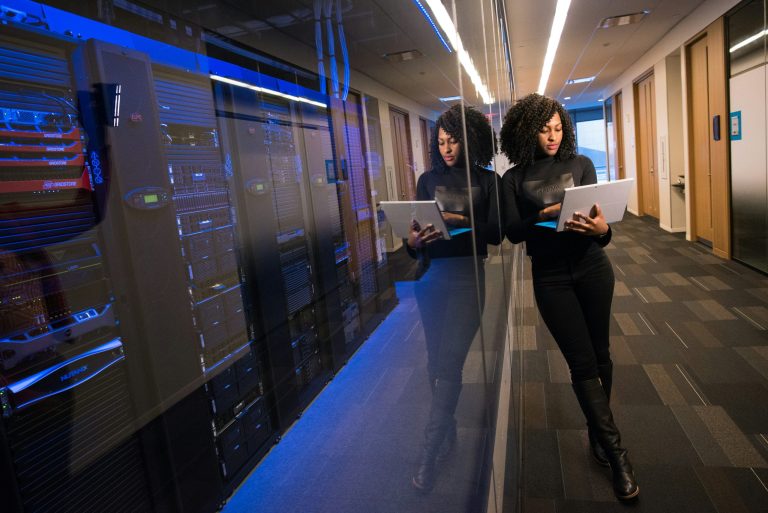Successfully adapting to the modern and future workplace requires a complete change in mindset towards rapidly evolving technology by employers and employees, according to research*.
Businesses that want to thrive must adopt a flexible approach to innovation and introducing new and emerging technologies, ensuring buy-in from their workforce while maintaining their business culture, says the white paper, prepared by Elizabeth Goodson, head of customer experience at AfterAthena, part of the Napthens Group.
The research titled “Technology and the Future of Work” also shows that HR professionals are at the epicenter of continuous technological change and implementing strategies to adapt to future technologies.
It reviews the changing technological landscape in the UK workplace, assesses emerging challenges and suggests strategies for employers to seize the opportunities presented by new technologies, while managing risks and helping employees adapt to unprecedented change.
Citing reports and research, Elizabeth highlighted that while artificial intelligence (AI), robotics and automated equipment have had a positive impact on jobs overall, the increasing use of technology will also have an uneven impact on different sectors, locations and demographic groups including young people. People, low-income people, women and people with low levels of education.
Addressing the ethical and legal aspects and challenges of changing technology, Elizabeth considered:
-
Job transformation – Research by Patrick Brione, Head of Policy and Research at the Society for Engagement and Participation (at time of publication), has shown that although many new jobs will be created, they will not necessarily be in the same locations, sectors or skills lost, Which negatively affects certain segments of the population
-
Surveillance, Surveillance, and Privacy – Focuses on the algorithms that employers use to coerce and control their workers in a way that is impossible to detect
-
Bias and unfairness in AI and algorithms – Rachel Levine, a lawyer at 9 St John Street Chambers, warns that the use of AI in HR tasks including recruitment, onboarding and performance management is depersonalising and may contain hidden biases and prejudices.
-
Rachel also highlighted the challenges of defending automated decisions made by employers in employment tribunal discrimination claims, for example an employer attempting to defend a claim without understanding the information the AI tool was trained on
-
Employee wellbeing and mental health – Patrick Briony found that a third of UK employees cannot switch off from work on their personal time, with 40 per cent checking their mobile phones or work emails at least five times a day outside of working hours.
Regarding the impact of technological innovation on HR specifically, Elizabeth focused on “radical change” including so-called “physical” experiences – the merging of physical and digital experiences – and although digital transformation is revolutionizing HR, the human touch It remains necessary.
Ways in which emerging technologies are being positively integrated into HR include:
-
Algorithms to automate and enhance HR decisions including recruitment, redundancy selection and performance management
-
People analytics and data-driven decision making
-
AI Automation – AI tools help HR teams onboard employees, assess employee sentiment, and support HR functions including performance management and redundancy selection
-
Learning and Development – Using virtual reality (VR) and augmented reality (AR) to train employees on high-stakes tasks, data analytics to track engagement, course completion rates, knowledge retention and AI tools to create personalized learning materials
-
Using artificial intelligence to monitor employees and their activity.
Elizabeth's assessment of the essential role of HR professionals in implementing strategies for the future technology landscape included research conducted by the Chartered Institute of Personnel Development (CIPD) which said: “HR professionals play a crucial role in making decisions about investments in technology and how they will be implemented.
“They need to keep pace with rapid developments in the field, rely on robust evidence and proactively engage with important regulatory stakeholders to share a people-focused technology strategy.”
The CIPD stressed that HR professionals should be “valuable friends” and act as a “scouting board” where technology may impact jobs, with a place in the boardroom to ensure an active leadership role in all discussions about workplace technology that could impact jobs. Affect workers and employees. Their jobs.
HR strategies for successfully managing technology transformation recommended by Elizabeth include:
-
Stay up to date on technology trends
-
Communication and collaboration
-
Monitor legal and regulatory changes to adapt, technological advances and comply with requirements
-
Continuous training and skills upgrading
-
Enhance data literacy skills
-
Using technology to develop a holistic approach to health and wellbeing such as flexible working
-
Introducing workplace policies on the acceptable use of generative AI
-
Planning for the introduction of algorithms while ensuring that a human manager has ultimate responsibility for workplace decisions and agrees to standards for their ethical use around bias, fairness, monitoring and accuracy
-
Workplace monitoring – training line managers to pay attention to employees’ needs and concerns, with employers being open and transparent about this monitoring
-
Be vigilant about cybersecurity threats and best practices and educate employees to protect sensitive information.
In conclusion, Elizabeth said: “Successful adaptation to the modern and future workplace requires a complete change in mindset, for both employer and employee. The world of work is changing rapidly and is likely to continue to do so.
“Therefore, a flexible approach to innovation and the introduction of new and emerging technologies is key, as is a desire for continuous learning.
“Employers need to secure buy-in from the workforce, and to do this, they need to involve employees in the decision-making process and share the benefits of any increase in productivity that arises from the introduction of new technologies.”
* After Athens

